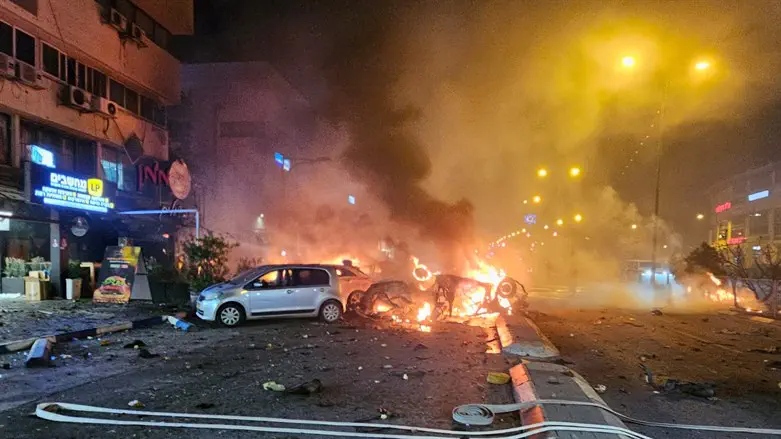
Tira El Cohen is the head of Kedma- Young Communities, an organization that operates youth villages and student villages in towns and kibbutzim near the northern border.
As the war began, the Israeli government took an unprecedented precautionary step, displacing residents of the north and the Gaza. Envelope The realization of the threat from Gaza gave rise to real panic among decision makers. At first, the decision seemed logical, but seven months away from the beginning of the war, it is hard to see what can prevent it from becoming irreversible.
The scars of the October 7th massacre will remain in national memory for generations to come, let alone in the minds and hearts of those who live under constant threat. Despite years of identifying Hezbollah as a real, realistic and dangerous threat while eyeing Hamas as a mosquito incapable of doing harm, those days of shock and awe have become real anxiety. This anxiety gave birth to a policy.
In normal times, the displacement of Israeli citizens from their homes leads to a harsh political debate between the left and right. In the previous decade, the Knesset even approved a law requiring a special majority for displacement in exchange for peace. This time, the decision was made unanimously and with no peace agreement in sight. Without any in-depth discussion of the consequences, the residents of the north were called to evacuate on October 8th, one day after the massacre. Many did not wait for the decision and packed their things and fled during the afternoon hours of that Black Sabbath.
They didn't have David Ben-Gurion, who came up north to Kibbutz Ein-Gev in order to quote the poet Natan Alterman in their ears and say: "There is no nation that retreats from the excavations of its life," nor did they have Yigal Allon to make it clear to the residents of Safed that despite the threats, they are not going anywhere. On the contrary, the government urged residents to leave the danger zone.
First to leave were the new residents of the northern border, who are part of a movement of demographic growth in northern border towns that had been going on since the Covid-19 pandemic. Not all of these communities, but many of them, were filled with young people, students from Tel Hai College who fell in love with the nature and landscape of the Upper Galilee. After them went the families, shocked by the horror that wiped out entire families near the southern border in the Gaza Strip. This time, even those who saw holding on to the communities as a matter of national strategic importance precisely during times of security threats - in the spirit of Tel Hai - broke down and fled. Both the imminent threat and the explicit instructions encouraged people to displace themselves.
Whereas terror attacks in Judea and Samaria lead to statements calling for starting new construction or granting building permits, the equation inside pre-1967 Israel has completely reversed since October 7th. Threat leads to withdrawal, displacement, leavetaking. These withdrawals have precedential consequences.
A small ripple that affected all the citizens of the State of Israel was the government's decision to shut down the schools and kindergartens for fear of an Iranian attack.
The Home Front Comman (Pikud HaOref) changed the instructions late at night. . This doesn’t only demonstrate the importance of integrating young parents (and especially women) in decision-making positions, but mainly lack of understanding of the impact these decisions make on community and national resilience. The fear of the threat became so great that harming the resilience of the residents became the default choice.
This is the same infamous “accordion” policy adopted by the Israeli government during the pandemic, of opening and closing the economy, in accordance with morbidity levels. But now security threats vary from place to place.
The fortress and sanctuary of the Gaza Envelope residents were desecrated. While they are evacuated, they continue to suffer from alarms and missile threats in the places they were evacuated to in Eilat and the Dead Sea. The residents of the north, who have been living on hold for over seven months are groaning in the hotels to which they were evacuated. Although the local authorities have internalized some of the lessons learned during COVID and are trying to provide quality solutions to the residents, the central government has not yet faced the hardships it is causing citizens to suffer.
This is what it looks like when anxiety is a major factor in decision making. We are experiencing existential insecurity, but that is not a work plan. The country's leaders should convey hope and faith that better days are coming, our leadership has to be something we can look up to, despite everything. If anxiety continues winning the day, terror continues winning the battle, and we cannot let that happen anymore.